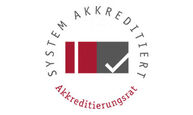Professor Beate Küpper from the Faculty of Applied Social Sciences was involved in the Friedrich Ebert Foundation's Mitte Study 2024/2025 "The Tense Centre". The result: the majority of people in Germany are democratically minded and express concerns about the rise of right-wing extremism. At the same time, however, a normalisation of anti-democratic and misanthropic statements can be observed in the centre of society.
A good three quarters of people in Germany (76.1 per cent) reject right-wing extremist attitudes. 3.3 per cent of the population have an extreme right-wing world view. 19.8 per cent agree with national chauvinist statements. For example, a quarter say: "What Germany needs now is a single strong party that embodies the national community as a whole."
Distrust in the functioning of democracy is increasing
Democracy in general continues to enjoy a high level of approval. However, mistrust in democracy is growing. 21.5 per cent have no trust in democratic institutions. 18.2 per cent lack confidence in democratic elections. That is three times as many as four years ago. Only just over half (52.0 per cent) of respondents agree with the statement "German democracy works quite well on the whole."
Normalisation of anti-democratic attitudes
Doubts about democracy go hand in hand with attitudes that contradict the liberal spirit of the Basic Law: Although 87.7 per cent believe that the dignity and equality of all should come first in a democracy. At the same time, a third (34.1 per cent) believe that "we cannot grant everyone the same rights in the national interest". A quarter (25.3 per cent) believe that too much consideration is given to minorities, while more than one in ten (10.8 per cent) reject the idea of protecting the fundamental rights of minorities.
Right-wing extremist attitudes have long since found their way into the broad public debate, leading to habituation effects and normalisation: for example, around a third share derogatory attitudes towards asylum seekers (30.2 per cent) and the long-term unemployed (36.1 per cent). Anti-Semitic attitudes in their various dimensions are widespread in society. For example, 17.0 per cent somewhat or completely agree with Israel-related anti-Semitism, while a further 22.4 per cent partly/partly agree.
Active action required against right-wing extremism
The research team, led by Prof. Dr Andreas Zick from Bielefeld University, also identified potential ways of dealing with right-wing extremism. Every second respondent is prepared to do something to counter right-wing extremism themselves, with a further 25 per cent agreeing to some extent. 61 per cent call for more political education against right-wing extremism, with a further 23 per cent agreeing to some extent.
The representative Mitte studies conducted by the Friedrich-Ebert-Stiftung provide information on the prevalence, development and background of right-wing extremist, misanthropic and anti-democratic attitudes in Germany. Since 2006, the Friedrich-Ebert-Stiftung (FES) has published a new edition of the "FES Centre Study" approximately every two years.
Further information on the Friedrich-Ebert-Stiftung's Centre Study can be found at: https://www.fes.de/mitte-studie



















